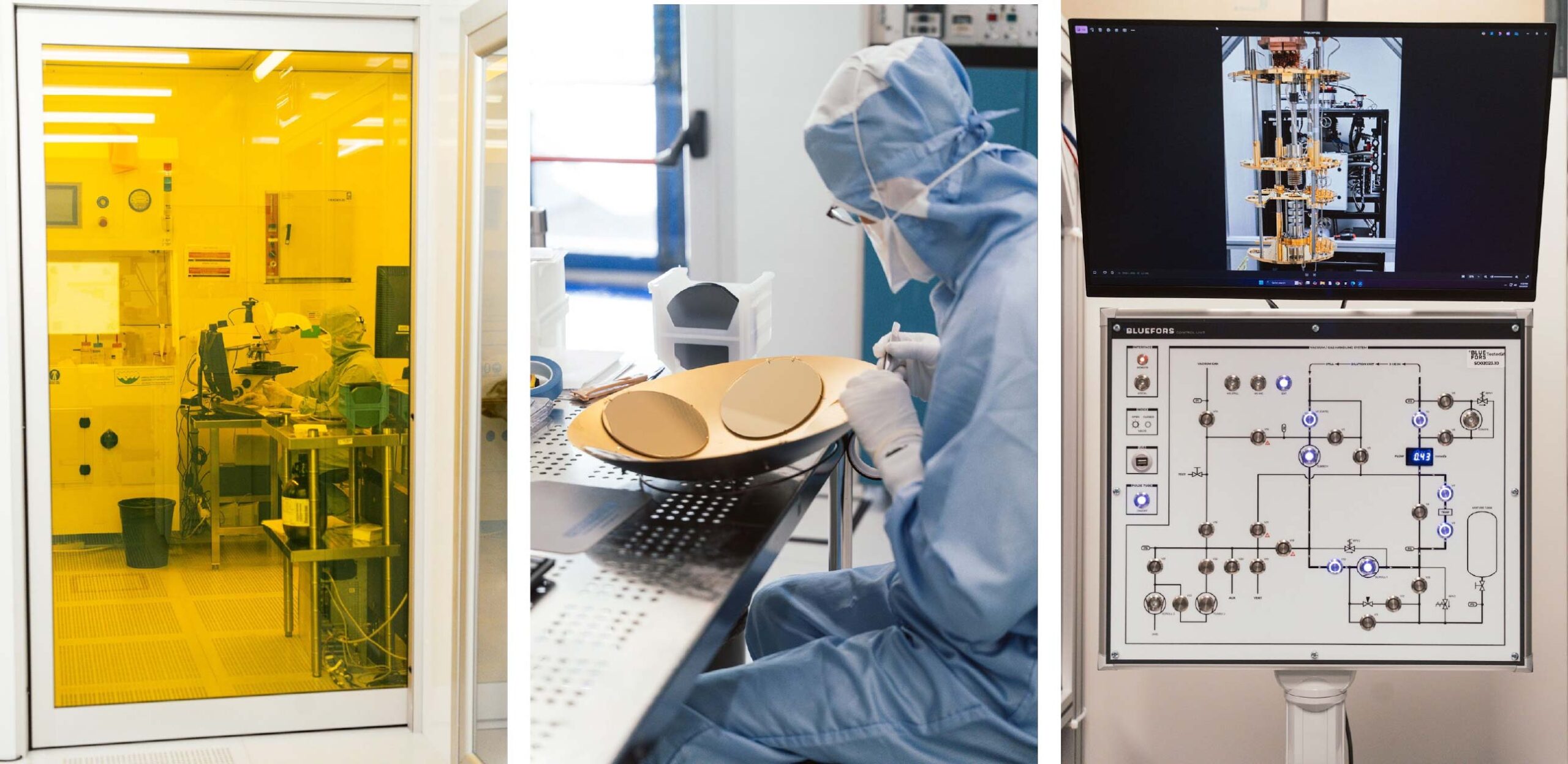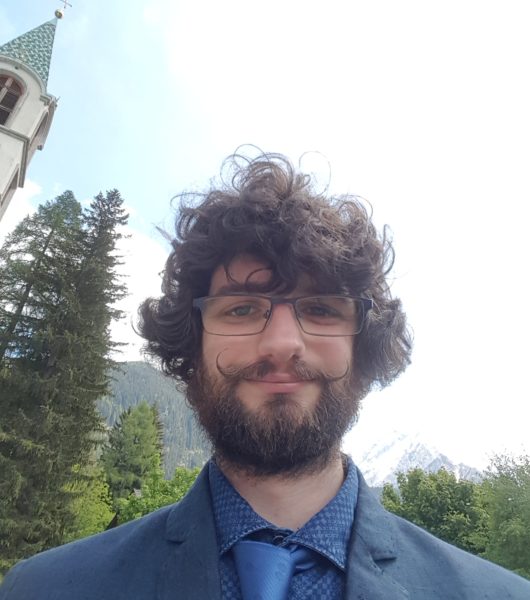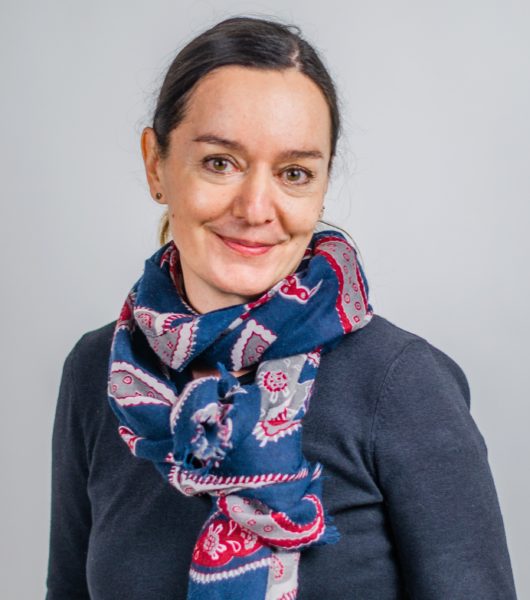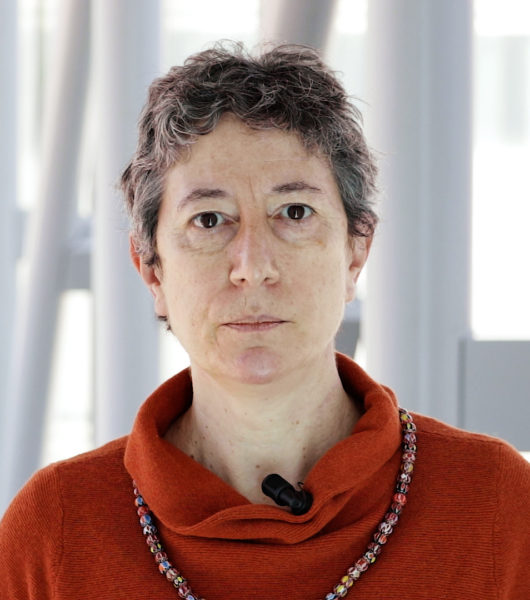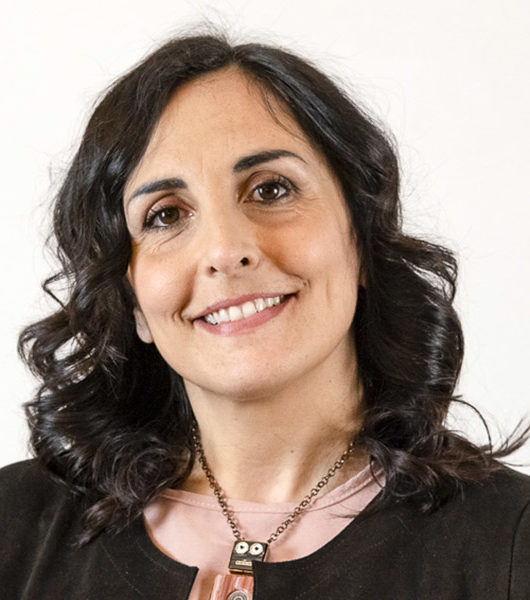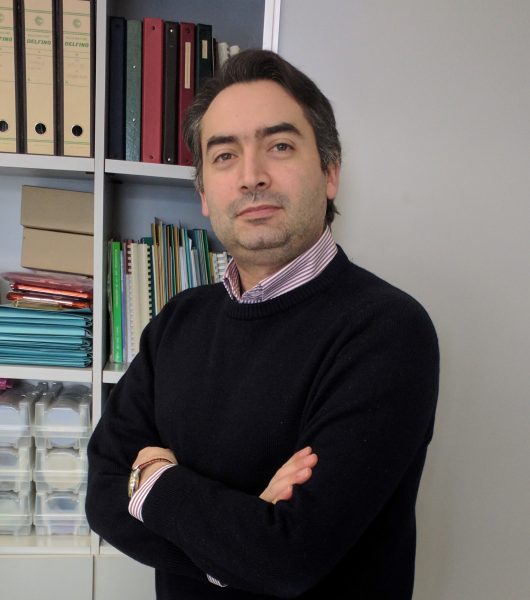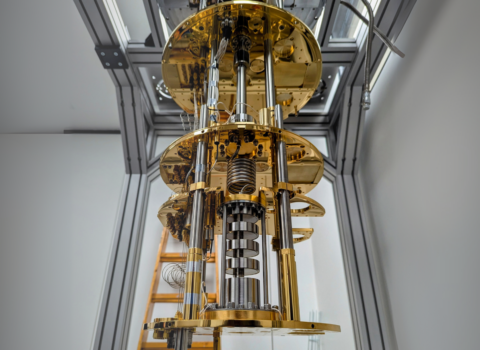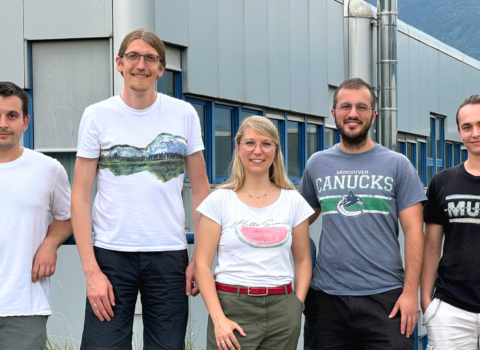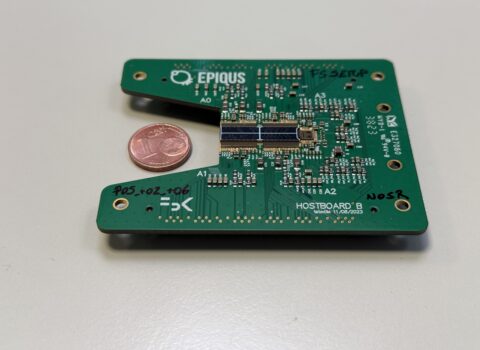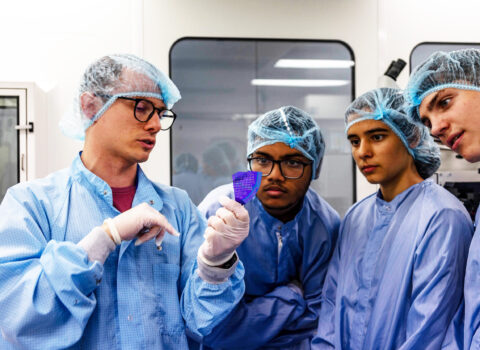
Quantum pioneers at FBK: inside the lab of the revolution
The first edition of the “Pioneers in Research” Summer School offered an innovative programme created to immerse students in the dynamic field of microelectronics, which is expected to have a transversal and deep impact in the next future.
“Quantum Pioneers” marks the first edition of a brand new initiative through which Fondazione Bruno Kessler opens the doors of its labs for an immersive research experience. This edition focuses specifically on quantum technologies and is aimed at students specialising in Computer Science, Engineering, Physics or Chemistry. It took place at the Povo campus during the week of 8 to 12 September 2025 and opens up to a series of future events that will address other research topics central to the Fondazione.
Quantum physics: what it is and why it will become increasingly important
While the first quantum revolution (since the early 20th century) was based on the concept of wave-particle duality and led to transformative inventions such as lasers, atomic clocks (the basis of GPS) and transistors, which ushered in the information age, what we are now experiencing and interpreting is the second quantum revolution (since the mid-1960s), which focuses on the “manipulation of individual quantum systems” (electrons, ions, atoms, photons, molecules) to exploit their inner properties in new applications.
Being at the forefront of this field of research is considered ‘strategic’ due to the significant impact on society promised by the numerous and wide-ranging potential applications of this knowledge, influencing sectors such as security, logistics and transport, communications, the environment and climate models, health and pharmaceuticals, finance, space and imaging.
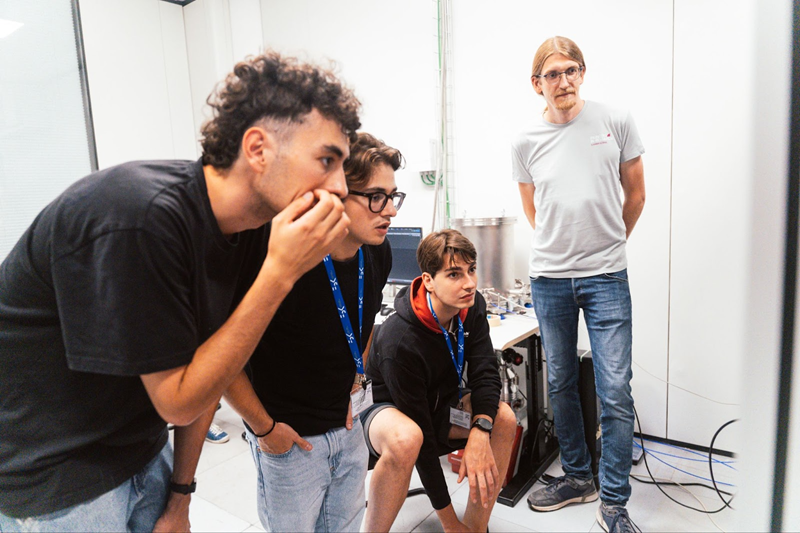 Class and interdisciplinary faculty
Class and interdisciplinary faculty
The Summer School welcomed 15 participants from different Italian universities (Libera Università di Bolzano, Politecnico di Milano, Politecnico di Torino, Università degli Studi di Genova, Università degli Studi di Roma La Sapienza, Università di Trento and Università di Pavia). A temporary learning community producing awarness thanks to mutual listening starting from far-apart backgrounds and intuitions which stimulate speculation and widen the panorama of reflection day by day. To support the activities, FBK involved a team of more than 20 people, almost all of them from the Sensors & Devices Centre, sided by the Scholars and PhD Program unit.
Inside the research lab
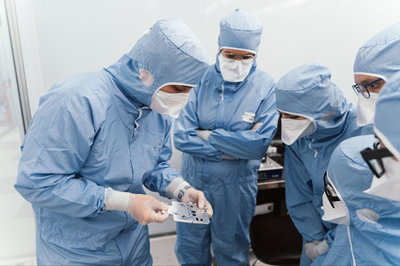
This programme offers a unique opportunity to fill the gap between academic theory and practical application in a cutting-edge research environment.
The challenge is to work alongside the group of learners, focusing on practical learning, passing on “know-how” and acting as a bridge between theory and professional practice. The advancement of knowledge thus comes through the resolution of complex problems.
One of the elements that distinguish the course is the desire to conduct educational activities in a real research laboratory, which, unlike a teaching laboratory, has more complex environments, equipment and substances. This choice implies great attention to compliance with strict safety protocols that provide clear emergency procedures and a well-defined response plan to manage any incidents quickly and effectively. On the first day, specific training was dedicated to these aspects before entering the FBK laboratories and facilities, always with constant and careful supervision to ensure the safety of students and teachers, in accordance with Legislative Decree 81/2008.
‘The students – Federica Mantegazzini, Head of SQD says – proved to be enthusiastic of the expriences in labs because they immediately realised to be inside real research laboratories – not only teaching labs – with advanced instruments and had the chance to literally put their hands on state-of-the-art experiments, on which researchers like us work every day.’
‘They were catapulted,’ – adds Antonino Picciotto, head of front-end activities at the Micro-Nano facility – ‘into a world where you have to wear a suit that makes you unrecognisable to enter, a world where the atmosphere is much purer than that of an operating theatre, a world where physical quantities are measured in nanometres, billionths of a metre, and where devices and sensors that we use every day in our daily lives are built from silicon with the help of machines worth millions of euros. This is the world of clean rooms.’
 “The Science of Light” – a glimpse into the future
“The Science of Light” – a glimpse into the future
With a global market growing steadily at around +7% per year and a turnover in Europe worth more than €100 billion, second only to China, photonics is one of the fastest-growing sectors worldwide. The “science of light” has been identified by the European Commission as one of six “key enabling technologies” considered “strategic for industrial innovation, well-being, community safety and sustainable development”.
It has given a fundamental boost to both basic and applied sciences, finding use in manufacturing (laser cutting, marking), ICT (lightning-fast information transmission and processing), biomedicine (diagnostics and therapy), energy (photovoltaics) and security.
‘Quantum photonics,’ comments Martino Bernard, ‘aims, in particular, to develop new devices and applications by manipulating the quantum nature of electromagnetic radiation, with a focus on the development of quantum platforms that can be integrated into chips that can operate at room temperature and therefore be implemented in commonly used devices such as PCs or mobile phones.’
The programme of the Summer School
“Quantum pioneers” was designed to immerse tomorrow’s researchers in the world of quantum research and technologies, introducing them, often for the first time, to laboratory practices (e.g. in the Clean Room, the Superconducting Quantum Lab and the Backend), divided into three groups of five people on a rotating basis. The topics presented ranged from fundamental aspects to emerging applications, from superconducting quantum circuits to quantum photon emitters (from manufacturing to characterisation), from integrated photonics (which plays a fundamental role in the development of advanced communication and sensing systems) to quantum imaging and AI sensor integration.

Laboratory for the characterisation of single-photon emitters in diamond
‘Quantum pioneers – commenta Claudia Dolci, Responsabile dell’Unità Scholars and PhD Program – ‘was an important test for FBK, and represents the first edition of a project that aims to promote and attract talent. The goal is to offer these students, during their master’s degree, a unique opportunity to experience research “in the field”, enrich their skills and their CVs with a view to future choices. The Foundation opens its doors to these young profiles, offering a glimpse into state-of-the-art research thanks to the quality and commitment of the research team that made this experience possible. We hope that this commitment will be a stimulus, and we hope to welcome some of these “pioneers” as colleagues in the future.’
The future at stake or the present under discussion?
The dilemma between research and innovation was discussed, which for companies involves balancing long-term exploration with short-term market needs and existing business models, with references to the definition of Technology Readiness Levels (TRL) and the role of nanotechnology in the upcoming Quantum Technology Revolution.

Finally, through an exercise looking to the future, the social implications of technology were addressed. Anthropologist Sara Hejazi, FBK researcher at the Centre for Religious Studies and the Sensors & Devices Centre, led an educational game, the Quantum Diplomacy Game, based on teaching materials produced by GESDA and available online.
The group staged a confrontation between four nations in 2035 on the brink of an irreparable crisis, interpreting the key players in a difficult but not impossible composition of interests and conflicts, in which quantum physics represents a crucial resource and, at the same time, a factor of friction.
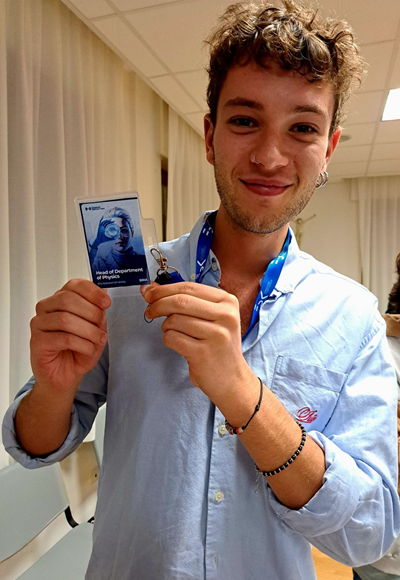
Edoardo Sozzo (student at PoliMi – Physics Engineering – Quantum Materials and Nano-Physics)
This was followed by a discussion on potential developments and the resulting political upheavals, but also on the values through which the constraints of role-playing were interpreted and embodied. It was an important lesson on the significance of multilateral relations and the opportunity to consider the mutual benefits that derive from them, going beyond a management of issues based exclusively on power relations. The discussion broadened the scenario, extending from the national to the supranational level, and questioning participants on the dominant values of the present and the universal rights to be reaffirmed. With the hope that some of these “ministers for an evening” will be able to put their good intentions into practice in a decade or so.
‘Participating,’ comments Marco Gamba, a student of Engineering Physics at PoliMi, ‘gave me the opportunity to get to know research facilities with cutting-edge projects in the semiconductor sector and, above all, in the emerging field of quantum technologies. On the one hand, the large number of researchers and PhD students who mentored us, always available to answer any questions we had, and on the other hand, the close contact with other students from different disciplines and with different interests, made the experience very interesting and never boring. In addition, the extracurricular ‘Quantum Diplomacy Game’ proved to be stimulating and fun, a challenge and at the same time a great way to get to know each other better. Finally, FBK’s location, framed by the Trentino Alps, makes the experience truly unique and one that I would definitely repeat!

Thanks to this experience’, comments Giulia Guazzieri, a UNIBZ student in Data Analytics for Economics and Management, ‘I was able to expand my knowledge in the field of quantum hardware and consolidate some of the physics concepts I had already learned. The opportunity to interact with my peers from different backgrounds was enriching because it created a real exchange of knowledge. Every day I learned something new and felt surrounded by motivated and passionate people who were able to convey their enthusiasm and dedication. I would definitely recommend FBK PIONEERS in Research to other students: it is a unique opportunity to get hands-on experience in research, acquire new skills and be inspired by an international and highly motivating environment.’
